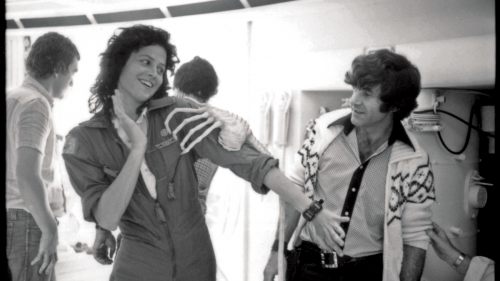Seek The Truth In The Ether - Read The CLAIRE DEWITT Mysteries
I believe that someday, perhaps many lifetimes from now, all will be explained, and all mysteries will be solved. All knowledge will be free for the taking, including the biggest mystery of all – who we really are. But for now, each detective, alone in the woods, must take her clues, and solve her mysteries for herself. – Jacques Silette, Détection
The above is an excerpt from the only book ever published by Jacques Silette, the long-dead French detective whose life and legacy shape the world of Sara Gran’s Claire DeWitt novels. In their world, Silette was a brilliant investigator whose methodology and philosophy – laid out in Détection – often baffled his peers. When his young daughter Belle was abducted and he failed to rescue her, Silette shattered. In death, he and Détection faded into obscurity. Many of those who still knew of Silette dismissed him as a pretentious buffoon whose life’s work amounted to an incompressible compendium of nonsense. But some, particularly a young Brooklynite named Claire DeWitt and her best friends Tracy and Kelly, found enlightenment in his words and a calling in his craft. Claire, Tracy and Kelly’s relationships to each other and to Détection would shape their whole lives. Tracy’s until the night she vanished without a trace. Kelly’s into an adulthood devoted to her friend’s disappearance. And Claire DeWitt’s into life as, as she would accurately describe it, the “best detective in the world.” Thus far, DeWitt has starred in three novels by author Sara Gran – 2011’s Claire DeWitt and the City of the Dead, 2013’s Claire DeWitt and the Bohemian Highway and 2018’s The Infinite Blacktop. They’re some of the best detective fiction I’ve ever read. The Infinite Blacktop is now out in paperback, and Fall – always a good season for a mystery – is on its way. With those two factoids in mind, I’d like to dig into some of the Claire DeWitt series’ hows and whys – to celebrate both Gran’s craft and her unforgettable hero.
Consider this excerpt from The Infinite Blacktop –
…He’d dropped out of sight. There were rumors that he had to disappear after running a real-estate con on the wrong men. That he’d hooked up with a man selling fake gemstones out of Phoenix, Arizona. That he’d had an affair with a Baptist politician and blackmailed him for a small fortune. And a long-standing rumor that Jay Gleason ran a scam correspondence school for private investigation out of Las Vegas.
Like the PI school advertised in the Cynthia Silverton comic books.
The ad I’d answered five days before someone tried to kill me.
The Claire DeWitt novels are written in first person, and Gran builds the way DeWitt speaks on the process of her work. As eccentric as DeWitt’s investigative methods and the Silettian theories she built them from can be, they’re a handy tool to help the audience keep track of all the story’s moving pieces. When DeWitt thinks something through, be it anything from the investigation itself to her own history, she lays it out. In the case of the excerpt above, DeWitt’s drawing on her memory of a brief, disturbing encounter with infamous Silettian Jay Gleason allows Gran to reintroduce DeWitt’s history with the wider Silettian community. It reinforces the series’ recurring exploration of memory and the past – all three Claire DeWitt novels jump between multiple points in her life, and even in the immediate moment she’s prone to reflection. It builds Gleason’s character while preserving his enigma – no one knows exactly what he’s been doing, but they do know that at best it’s thoroughly shady. And it underlines the urgency of the mystery – DeWitt may be safe for the moment, but someone is still actively trying to murder her.
Gran brings this level of craft and care to the entirety of The Infinite Blacktop and its older siblings. And she does so through vibrant language that’s a ton of fun to read, that demands to be savored. Here’s another bit from The Infinite Blacktop:
He smiled and stood up and said, “Claire, I –“ and I took out my .45 and Christopher got a look on his face like I’d just called him ugly and I hit him with the .45 across the face, where his temple and his high, defined cheekbone met.
It’s a long sentence, but deliberately so. It’s an instantaneous burst of violence, so fast that punctuation can’t catch up until DeWitt’s pistol whip connects. To read it is to feel the wind from DeWitt’s strike, to hear a smarmy bro detective’s face break. It crackles.
Gran’s mastery of writing extends to the way she defines and grows DeWitt across the series. Her relentless drive to know traces back to her childhood discovery of Silette’s book and her best friend Tracy’s fate. But those moments in her life, pivotal and haunting though they are, are not the whole of Claire DeWitt. DeWitt solves mysteries and plumbs the deep weird both horrific and miraculous (parts of the series are very deliberately surreal, and Gran’s also a well-regarded horror writer) for the pleasure of it. Wellness does not come easily to her – at her worst she’s a shining example of humanity's tendency to self-destruct – but she never stops searching for the truth. Be that the truth of her current case, the truth of Tracy’s fate or the truth of her own soul, time and again she’ll wade into the fog and the ether.
In Claire DeWitt, Sara Gran has created an incredibly compelling hero, both in action and in character development. Reading her investigations is a pleasure, both because she’s a great lead and because Gran’s a damn good writer. Seek these out, they’re terrific reads.
Photo by Eliza Gran, courtesy Simon & Schuster



